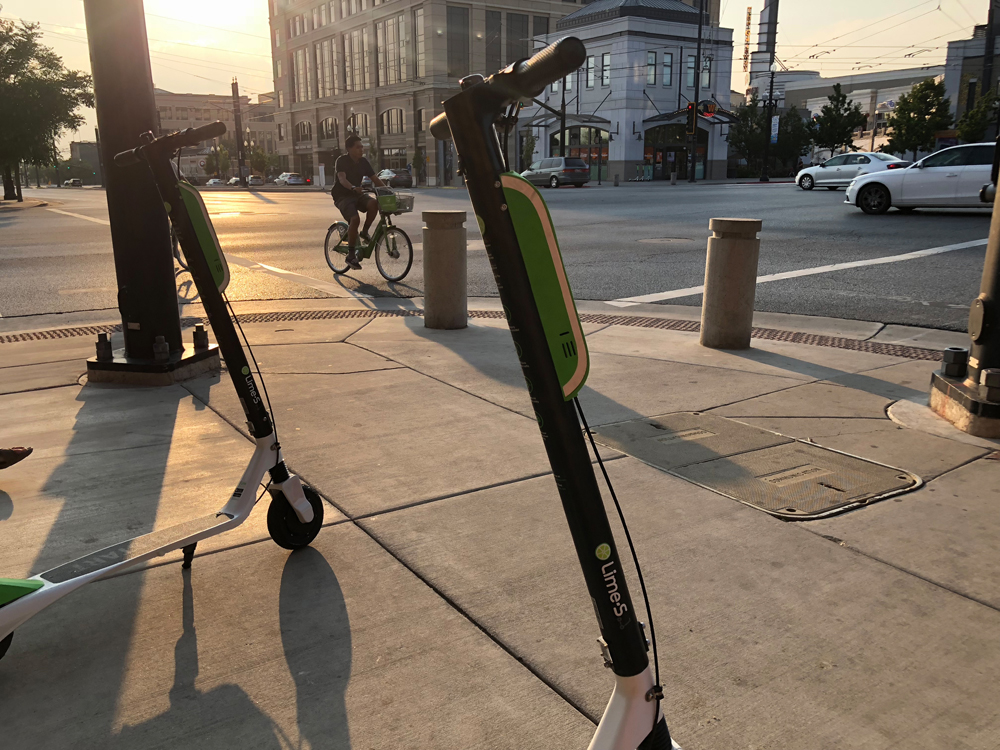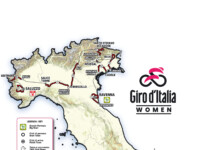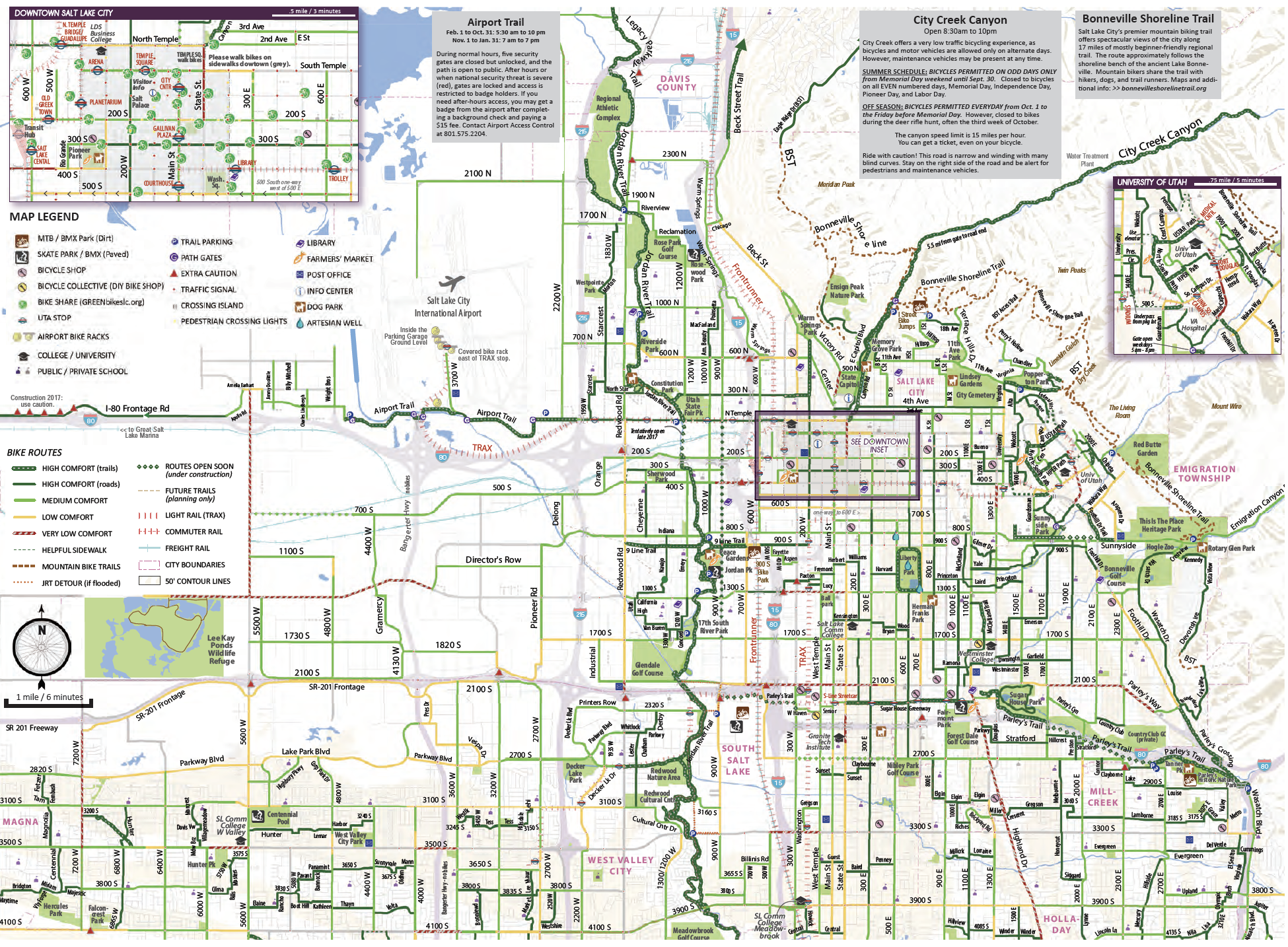By Ken Christensen and Russ Hymas
As cyclists and car drivers we are very familiar with the term “share the road.” But until recently, we didn’t think this included e-scooters. If you’ve walked or driven around Salt Lake City, Reno, Oakland, or Boise lately, you’ve probably seen people zipping around town on two-wheeled battery powered razor-like scooters that are part of an e-scooter sharing program growing in popularity.

The e-scooter program is pretty simple: you download an app from companies like “Lime and Bird” that lets you find and unlock a nearby e-scooter for a small fee, often just $1. The scooters travel about 15-20mph and anyone with the app and a credit card can use them. You can then ride around, and the app charges you per mile. These companies have already calculated more than 20 million scooter rides. The scooters are dockless. So once your trip is finished, you can park your scooter anywhere local ordinance permits (you cannot block public paths).
This program may lead to problems for pedestrians and cyclists. Most city ordinances prohibit driving e-scooters on sidewalks, but the app doesn’t tell anyone about this before they unlock their scooter and start traveling. At almost any time of the day, people can be seen riding e-scooters on sidewalks, around town, and in bike lanes. One of the biggest problems is that people are often riding these scooters in the bike lanes against traffic.
There have been numerous reports of accidents on motorized scooter rentals nationwide. In September of 2018 alone, three people died while riding scooters in Dallas, Cleveland, and Washington D.C.
Some people have filed lawsuits against the scooter rental companies. But these are expensive and difficult cases to win. The more likely case is against the person who caused the accident. Careless drivers will always be personally liable, but you hope they have some type of insurance policy to cover your damages.
For example, let’s assume you are hit by a careless scooter driver while riding your bike. How will you get your injuries, bike, and other damages paid? Automobile insurance generally omits liability coverage for motor vehicles with less than four wheels. So, it’s unlikely that the scooter driver’s car insurance company will pay your claim. If the driver has personal motorcycle or ATV insurance then there should be coverage, but very few people have these types of policies. So, a homeowner’s or renter’s insurance claim may be your only chance of finding insurance.
Most homeowner’s and renter’s policies provide some liability coverage if you cause an accident even when you are away from home. But a cyclist will have to open a claim to see exactly what the driver’s homeowner’s or renter’s insurance policy covers. Unfortunately, coverage may be limited or denied because it was a rental scooter. Always check to see if there is an umbrella policy in addition to the homeowner’s policy. Personal umbrella policies offer an extra layer of protection that kicks in when you reach the limit of the underlying homeowner’s or automobile policy.
You cannot make an injury claim under your personal homeowner’s or renter’s insurance policy. However, you can make a property damage claim for your bike if the careless driver doesn’t have any insurance available. Some cyclists do not realize that they can make a claim under their own policy when their bike is damaged outside of the home. But this is one of those situations where you should contact your insurance adjustor and find out what coverage is available. You may have to pay your deductible, but at least you will be able to replace your damaged bike and get back outside doing what you love!
Ken Christensen and Russ Hymas are avid cyclists and Utah attorneys at UtahBicycleLawyers.com. Their legal practice is devoted to helping cyclists injured in collisions with motor vehicles. They are authors of the Utah Bicycle Accident Handbook and are nationally recognized legal experts on cycling laws and safety.











